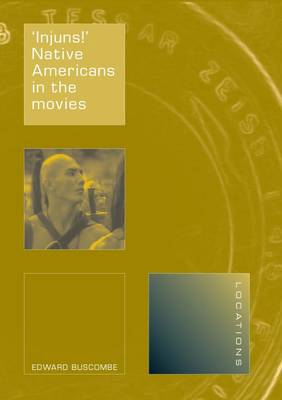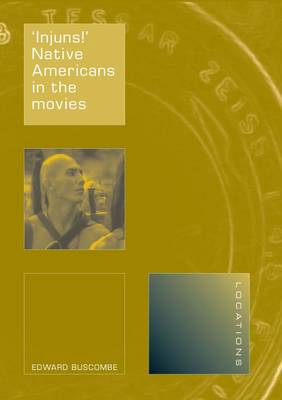
- Retrait gratuit dans votre magasin Club
- 7.000.000 titres dans notre catalogue
- Payer en toute sécurité
- Toujours un magasin près de chez vous
- Retrait gratuit dans votre magasin Club
- 7.000.0000 titres dans notre catalogue
- Payer en toute sécurité
- Toujours un magasin près de chez vous
16,95 €
+ 33 points
Description
The indispensable sage, fierce enemy, silent sidekick: the role of Native Americans in film has been largely confined to identities defined by the "white" perspective. Many studies have analyzed these simplistic stereotypes of Native American cultures in film, but few have looked beyond the Hollywood Western for further examples. Distinguished film scholar Edward Buscombe offers here an incisive study that examines cinematic depictions of Native Americans from a global perspective. Buscombe opens with a historical survey of American Westerns and their controversial portrayals of Native Americans: the wild redmen of nineteenth-century Wild West shows, the more sympathetic depictions of Native Americans in early Westerns, and the shift in the American film industry in the 1920s to hostile characterizations of Indians. Questioning the implicit assumptions of prevailing critiques, Buscombe looks abroad to reveal a distinctly different portrait of Native Americans. He focuses on the lesser known Westerns made in Germany--such as East Germany's Indianerfilme, in which Native Americans were Third World freedom fighters battling against Yankee imperialists--as well as the films based on the novels of nineteenth-century German writer Karl May. These alternative portrayals of Native Americans offer a vastly different view of their cultural position in American society. Buscombe offers nothing less than a wholly original and readable account of the cultural images of Native Americans through history andaround the globe, revealing new and complex issues in our understanding of how oppressed peoples have been represented in mass culture.
Spécifications
Parties prenantes
- Auteur(s) :
- Editeur:
Contenu
- Nombre de pages :
- 272
- Langue:
- Anglais
- Collection :
Caractéristiques
- EAN:
- 9781861892799
- Date de parution :
- 01-06-06
- Format:
- Livre broché
- Format numérique:
- Trade paperback (VS)
- Dimensions :
- 121 mm x 171 mm
- Poids :
- 312 g

Les avis
Nous publions uniquement les avis qui respectent les conditions requises. Consultez nos conditions pour les avis.






